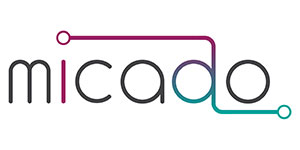
08 Feb The local MICADO versions in the MICADO cities
Featured Image: “crossroads” by Laenulfean is licensed under CC BY-SA 2.0
This year the first release of MICADO will be tested in the four MICADO cities Antwerp, Bologna, Hamburg and Madrid. Preparations for this are in full swing. There is a small deviation from the original project roadmap: According to the pagoda principle of the project schedule, it was planned to test the universal MICADO before starting to develop local adaptations to it. However, as the project has progressed and the pilot has been planned, it has become apparent that MICADO must be installed locally to be operational. Here are the main three reasons for local MICADO versions:
-
- The locally required content, which was developed in Work Package 2 during the co-creation process with the local target groups, differs from city to city. In each city there are particular content “gaps” that are filled with MICADO. Having the content of all cities in one application would have compromised the clarity of the content presented to migrants and refugees. The content is now clearly structured in the local MICADOs and does not have to be filtered by city.
- The MICADO content should not only be displayed in the respective local language, but also in two other foreign languages in addition to English, because the target group of MICADO are migrants and refugees. Which languages are particularly urgent locally was ascertained during the preparations for the pilot and differ from city to city. The local MICADOs will include the following language versions:
-
-
- Antwerp: Arabic, Dutch, English, Spanish
- Bologna: Arabic, English, Italian, Urdu
- Hamburg: Arabic, Dari, English, German
- Madrid: Arabic, Chinese, English, Spanish
-
-
- Each of the MICADO cities has a particular view on the MICADO features and weights them according to local conditions and needs. In Antwerp, the presentation of multilingual information and also the testing with regard to interaction is particularly interesting. In Bologna, the possibility of activating a tool that is not only informative but also a direct communication channel between the migrant and the PA regarding the integration path and the steps to be taken is of special interest. Hamburg focuses on the networking of diverse information from different sources in one place. Madrid sees a significant advantage in the Guided Processes because they allow to improve the information flow between migrants, the Centers for Participation in Integration of Immigrants (CEPIs) and Public Authorities.
For these reasons, the consortium decided to set up local versions of MICADO. “Setting up” means installing MICADO on a local server and adapting it to local needs, i.e. creating the content identified in the co-creation process, entering it in the local MICADO and translating it via Weblate, the integrated software for organizing translations, thus creating the local language versions. At the moment, all these preparations for the pilot are in full swing. At the upcoming General Assembly in March, i.e. the next (digital) meeting of all project partners to discuss the general progress of the project and the next big steps, the different local versions will be well advanced and the cities will be able to share their experiences with each other. The experience gained by the MICADO cities in the technical installation and content provision will also flow into Work Package 6 – Local Uptake, because other cities interested in MICADO can learn from these recommendations and guidelines.
